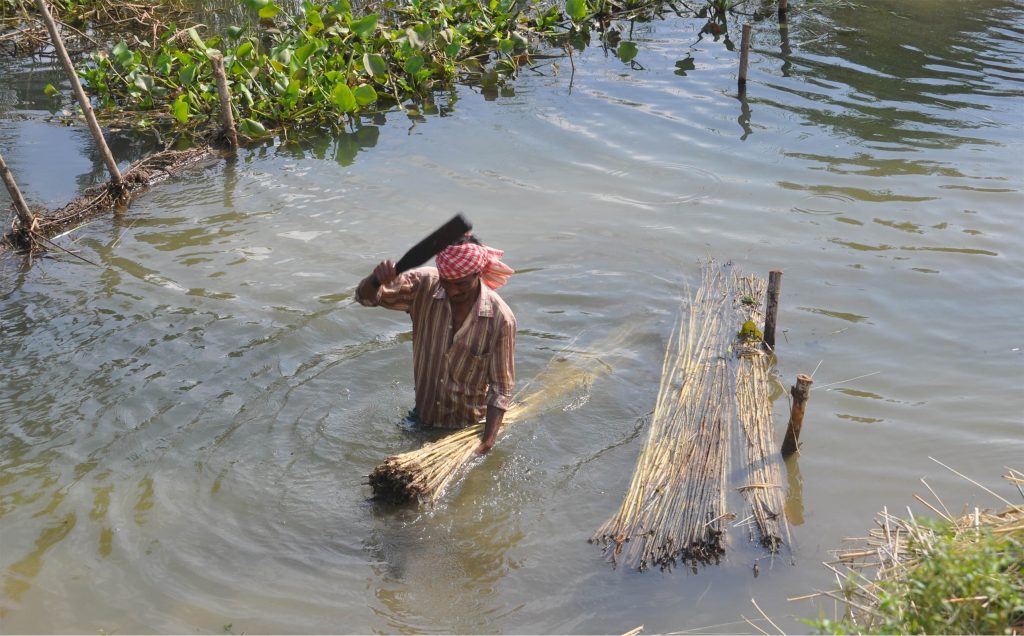Kendrapara: Jute cultivation is on the wane in Kendrapara district due to lack of government support, a report said. Reports said decades back jute sticks known as ‘Kaunria Kathi’ in local parlance was used as firewood. However, things have changed over the years as a piece of jute stick now sells for Rs 1 during Diwali festival.
The decline in cultivation of jute is blamed on the rise in the price of jute sticks. Observers said the district has favourable climatic conditions and land resources for jute cultivation but little government support led to a decline in its cultivation. Farmers are turning to other crops to earn a living.
Jute is a long, soft, shiny bast fiber that can be spun into coarse, strong threads. It is one of the most affordable natural fibers, and second only to cotton in the volume of production and the variety of use. Its fibers are composed primarily of the plant materials cellulose and lignin.
Jute was cultivated on 2,152 hectares in 2005. The cultivation rose to 8000 hectare in 2010 as the climate and soil proved conducive for the cultivation. In view of the increasing prospects for jute cultivation, the state government established a jute research centre over 46 acres at Jajanga in the district.
That encouraged farmers to use various types of seeds. As a result, jute cultivation rose to 14, 000 hectares in 2014.
However, the jute research centre soon got into problems and stopped selling jute seeds. Farmers in the district require 30 quintals of seeds but the centre provided only two quintals in 2018.
The centre waded into more problems as it stopped getting seeds from 2019-20. Left with no options, farmers were forced to buy seeds from open market. However, they proved to be of sub-standard quality.
Banamabar Sahu, a senior resident, said the district lacks major or small industries and agriculture is the main occupation of people. The farmers are turning away from jute cultivation due to lack of sponsorship from the state government.
The Centre and the state government have imposed a ban on use of plastic bags and replace it with jute bags. However, the district is lagging behind in fiber cultivation.
Niranjan Parida, a farmer, of Kansar panchayat said he has cultivated jute on 12 acres and transports the harvest to Kolkata for sale. Farmers also get decent earnings from selling jute sticks ahead of Diwali. However, this year they failed to get seeds due to failure of the agriculture department to supply them. Saraswati Samal, a woman farmer, of Parapangara said the district has a jute based cottage industry which employs over 60 women belonging to self-help groups. The unit manufactures various jute based products but its profit margin is declining as it has to pay more for purchasing jutes from outside.
When contacted, Ashok Mahasuara, deputy director, agriculture department, said the department is trying to revive jute cultivation in the district from next year as per the plan of the Centre and the state government. The department is also making arrangements to provide subsidies on seeds and other agricultural implements for farming jute.
PNN
